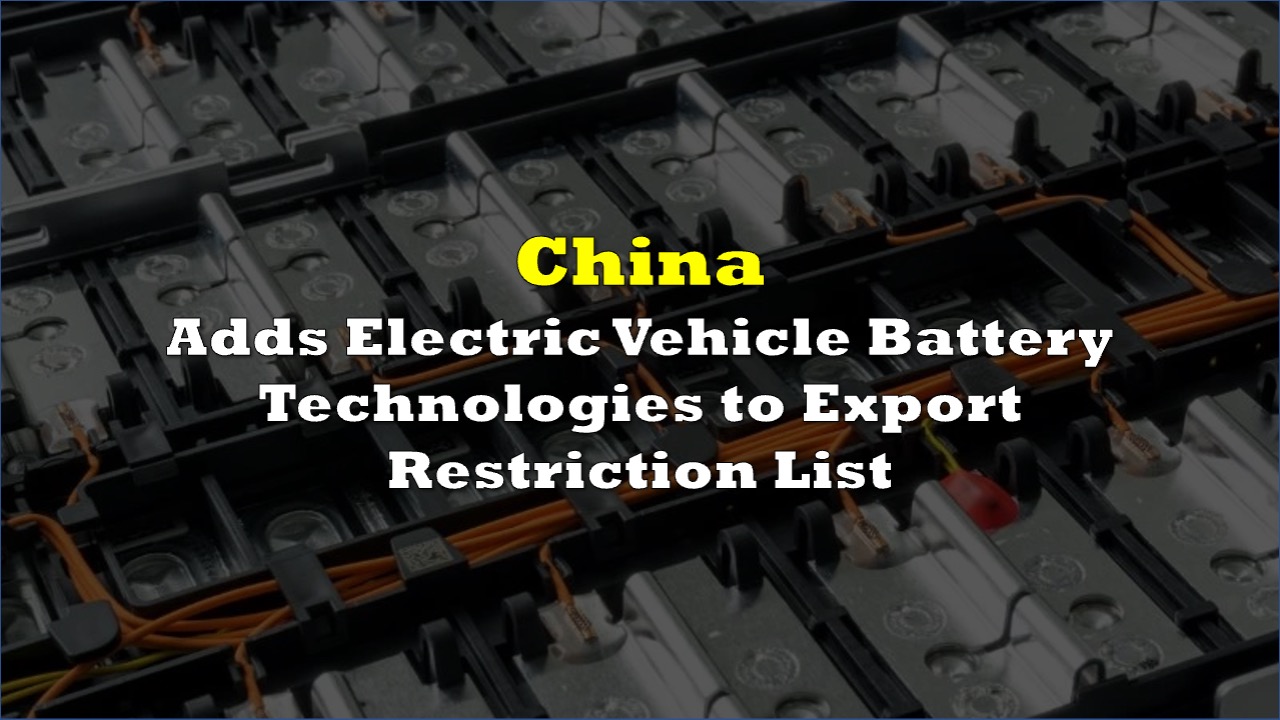China has implemented new licensing requirements for exporting advanced battery manufacturing technologies, marking another escalation in global tech trade tensions as Beijing seeks to protect its dominance in the electric vehicle supply chain.
The measures, effective July 15, require government approval before Chinese companies can transfer technical know-how for producing key EV battery components overseas. The controls specifically target methods for creating lithium iron phosphate and related cathode materials that power most electric vehicles.
“Battery cathode material preparation technology is increasingly being used in sensitive fields,” a Commerce Ministry spokesperson said.
Related: G7 Rolls Out Critical Minerals Playbook as China’s Grip Tightens
Beijing’s move leverages its commanding position in the global battery industry. Research firm Benchmark Mineral Intelligence reports China produces virtually all lithium-iron phosphate cathode materials worldwide and processes more than two-thirds of the world’s lithium supply.
Automakers have increasingly adopted the iron phosphate batteries that the restrictions target as they seek cheaper alternatives to nickel-based chemistries. These phosphate-based systems now power millions of electric vehicles globally.
China’s decision follows December restrictions that banned exports of gallium, germanium and antimony to the United States after Washington imposed tighter semiconductor controls on Chinese companies.
The new licensing system could complicate overseas expansion plans for Chinese battery giants like BYD and CATL, which have announced manufacturing projects across Southeast Asia, Europe and North America to serve local markets.
Beijing says the restrictions will “protect national economic security” while maintaining international business relationships. Companies may still export finished battery materials, but need special permits to share underlying production technologies.
The government conducted a public review of the regulatory changes earlier this year before implementing them this month.
Information for this story was found via the sources and companies mentioned. The author has no securities or affiliations related to the organizations discussed. Not a recommendation to buy or sell. Always do additional research and consult a professional before purchasing a security. The author holds no licenses.









